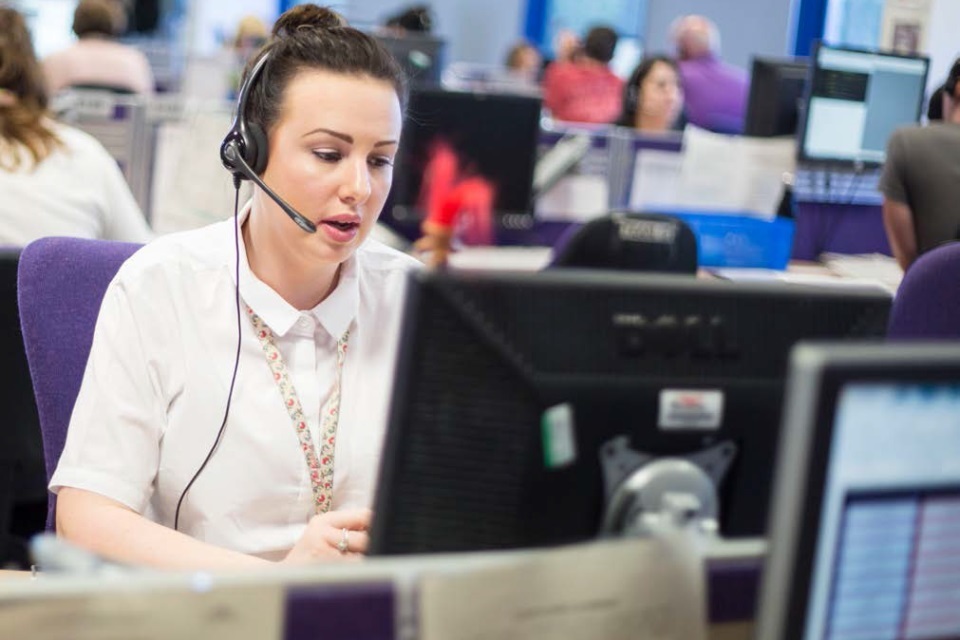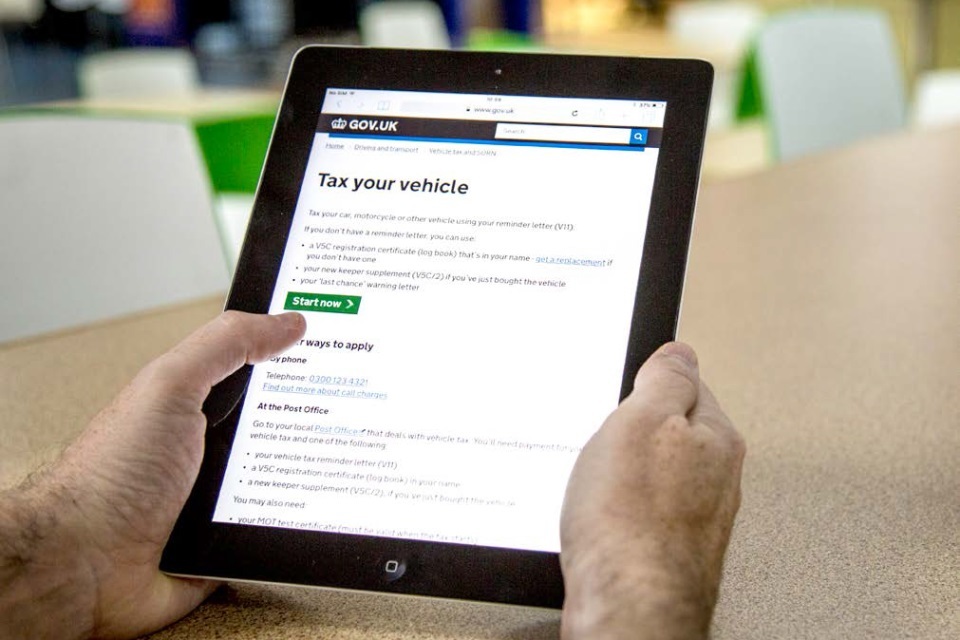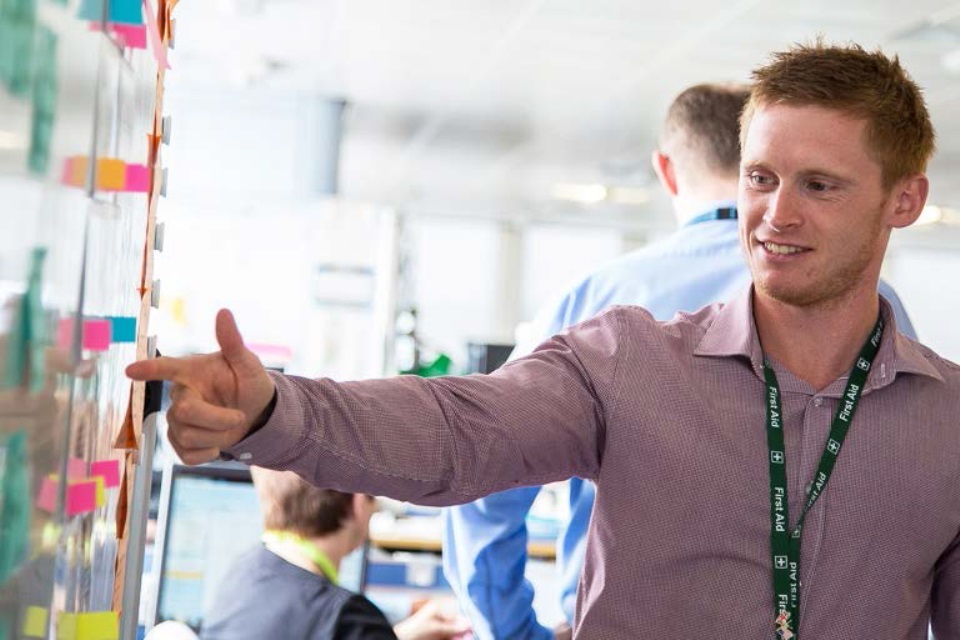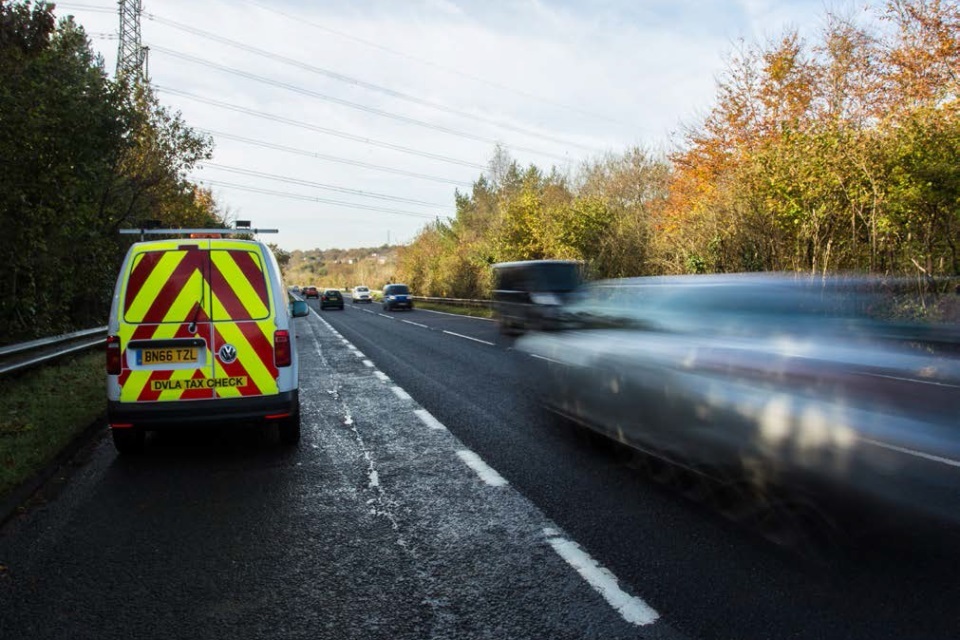DVLA Strategic Plan for 2017 to 2020
Updated 20 April 2018
1. Our role

Our goal is to get the right drivers and vehicles taxed and on the road as simply, safely and efficiently as possible.
Since 1974, the Driver and Vehicle Licensing Agency (DVLA) has been getting safe drivers and vehicles on the road. We are the one body for driver licensing in GB and vehicle registration in the UK, based in Swansea and serving millions with pride.
We strive to make our services simpler for our users. We are always looking to make things better for drivers and the wider public without losing sight of our core responsibilities, which are to collect duty and help keep the roads safe.
Every time we make a decision, we ask ourselves; “Does this help DVLA become simpler, better and safer?”
Oliver Morley CEO, DVLA
2. The story so far
Our strategic plan for 2014 to 2017 has been implemented.
We have:
For customers
- Significantly simplified our services for the public by removing the need for the paper counterpart to the driving licence.
- Abolished the tax disc, introduced direct debit payments for Vehicle Excise Duty for the first time and made the payment of refunds automatic.
- We have implemented reductions in various driving licence fees which has resulted in savings of around £20 million per year for motorists.
- Delivered quality services to the wider public sector, including HMRC and the Welsh Government.
- Taken on an additional 1.7 million customers from Northern Ireland, giving motorists there access to online vehicle services and the full range of Post Office services for the first time.
Internal achievements
- Delivered £78 million of net cost savings against our target of £40 million over the period 2014/15 and 2015/16
- Worked with staff to help them develop the skills they need to adapt to new ways of working.
- Exited our previous IT contract, delivering significant savings, bringing our IT back under our control and driving the use of modern digital technology.
- Engaged locally to help support and grow a vibrant local digital community.
We launched a set of new digital services increasing our overall digital take up to 92.3%
These new digital services include:
- Vehicle management – allows our customers to tell us online when they buy or sell a vehicle.
- Personalised registrations – allows our customers to manage their personal number plates online speeding up the process significantly.
- View and share a driving record – allows individuals and third parties (e.g. car hire companies) to check a driver’s entitlement to drive with the permission of the driver. The service won Digital Public Service Innovation of the Year award in 2016.
- My Licence – this allows drivers to give insurance companies permission to check their entitlement to drive when providing a quote.
- Fitness to drive – allows our customers to notify certain medical conditions online, significantly speeding up processing times.
- Access to Drivers’ Data – allows our corporate customers to check driver records (with drivers’ permission) in real time rather than the previous overnight system. This has also allowed us to cut the fees charged for these enquiries.
We also brought our IT in-house:
In September 2015, we became the first in government to move away from a large scale IT contract and bring IT services in-house. This will help to transform our business and deliver significant savings. A large part of the change has been the transfer of new staff who brought with them a wealth of experience, knowledge and skills.
3. Onwards
Our experience of delivering real change shows it is only possible with a single strategy that unites business, digital and technology.
Achieving our goals will make our services still simpler, better and safer.
Our first goal is to deliver best-in-class customer services. Individual motorists, hauliers, fleet companies, vehicle manufacturers and dealers, the police, courts and other government departments are all DVLA customers. We have focused on providing excellent online services, hand-in-hand with other channels. We intend to continuously iterate and improve our online services while still providing other channels.
We will benchmark the quality of our services against leaders in similar large-scale customer service organisations in the private and public sectors. We will aim to be in the upper quartile in both digital and traditional channels.
An important part of delivering this comes from our second goal – where we will build dynamic technology and services. Over the next three years, we intend to take the opportunity offered by cloud services, agile methodology (which we have already embraced) and our recently in-sourced IT services to be able to respond dynamically to both regulatory change and customer demand.
When we get this right, we will be a hub for digital motoring. Our registers are already critical to a wide range of services in the public and private sectors, including providing information to the police and Home Office where it is lawful to do so.
Our future goal is to provide even better services that will allow our customers internet based access to the data from our registers where they are legally entitled to it. We will always ensure that we protect the public’s personal information.
We do this to help UK consumers and the transport sector and to enable us to deliver government policy quickly and in innovative ways.
We are an exemplar in public sector innovation based in Swansea and benefiting from the local culture of entrepreneurialism as well as the innovative use of technology. We currently provide 26 of our 63 high level services online. Our Share Driving Licence Service won the overall Digital Leaders 100 Award and the Digital Public Service Innovation of the Year award at the prestigious Digital Leaders 100 Awards in June 2016. We were also the first in government to exit from a large scale IT contract and bring IT services in-house. In September 2016 DVLA won the best public procurement project at the CIPS Supply Management Awards for the PACT Commercial Exit Project.
DVLA plays a major role in the local community and we continue to be a great place to work, meeting the Investors In People standard again at the end of 2016. We embrace diversity both in staff and the people we serve. We get great gains for our staff from working with both central government and local partners – universities, colleges, the Welsh Government. This is the way we will develop skills and capability.
We want to create a state-of-the art modern workplace, an environment where our people can do the best work they can with the training, skills and capabilities they need.
Our people have received numerous awards, recognition and accreditation. These include winning the Civil Service Digital Award for View Driving Licence, winning the Best Large In-house Communication Team at the UK Public Sector Communications Awards and the Contact Centre achieved accreditation for the 9th consecutive year to the Customer Contact Association’s Global Standard.
Finally, we do not forget our core role: to provide unrivalled safety, security and compliance.
We believe that if we provide great services that operate securely and quickly, people will use them.
We are committed to providing the most efficient, effective services to meet the needs of a diverse and ever growing digitally aware customer base. We also look after a wide range of needs by providing assisted digital services.
For example, vehicle excise duty compliance is among the highest in the world, due largely to the convenience and simplicity of our online Electronic Vehicle Licensing (EVL) service. But we also want to make sure that those who do not comply pay their vehicle excise duty.
One of our key priorities is to reduce vehicle excise duty evasion to less than 1%. To achieve this, we will revisit our enforcement programme with an emphasis on using digital services. We will put in place an action plan of activities to support the delivery of the programme. We will work closely with DfT and HM Treasury to monitor delivery of the plan and to agree key decisions and investments.
Similarly, we will also continually improve our drivers’ medical services. Of the people who notify us that their medical condition may affect their fitness to drive, 90% still get a licence. Our role is to ensure that all medical notifications are investigated to ensure that only those who can meet the minimum medical standards for driving are able to obtain or retain a licence. We have already made a number of improvements, including a new online service where drivers can tell us about their medical conditions. The online service started with two medical conditions but will be rolled-out to include over 150 conditions.
Our goals and how we will achieve them
- Best-in-class customer services
- Dynamic technology and services
- Hub for digital motoring
- Modern workplace and skills
- Unrivalled Safety, Security and Compliance
Best-in-class customer services

- We manage our services in a joined-up way, whether online, phone, mail, or face to face.
- We will not remove a paper or telephone channel unless the public’s demand for it is less than 5% of transactions and there is an accessible alternative.
- We will continuously make these services simpler and better, cutting waiting times, and meeting best-in-class targets for responsiveness and satisfaction.
- We recognise that the business needs of our corporate customers are often different and more complex than those of ordinary motorists. These customers use our services more frequently and often handle large volumes of transactions. We will look at introducing digital processes for commercial users to access DVLA services, especially in relation to the processing of bulk transactions for fleet companies.
- We will work with key stakeholders from the commercial motoring industry, charities and health providers to identify improvements and speed up our medical licensing processes.
- With our DfT agency partners, we will build on the overall motoring experience. Working with industry groups, we will investigate further integration in accessing motoring agency services.
- If something goes wrong, we will learn from our mistakes, and provide a clear path for resolution. We are open, honest and transparent with ourselves and the public, and always try to be better than before.
- Where we save, we will reinvest in service quality and reduce costs to taxpayers.
Dynamic technology and services

- We are transforming our IT estate to help put more services online, making them as efficient and clear for our customers as possible while ensuring that their data is kept secure. Our systems will be fit for the digital age we live in.
- From now on, where we build new services we always lay the foundation for our new technology, not just our old legacy.
- We will move as much technology infrastructure as possible to commodity cloud suppliers where it makes sense from a security and cost perspective.
- We intend to move from the majority of our legacy systems within three years. The migration will be subject to strong business cases and will be led by our own IT teams.
- We will work closely with other government partners, adhering to manageable and clear service level agreements as we do contractually with external partners.
Hub for digital motoring

- We maintain two key motoring registers which have details of vehicles throughout the UK and drivers in Great Britain.
- We keep on innovating using these registers with 10 new online services launched since 2014.
- With new infrastructure, we will make these registers more flexible and scalable, allowing for massive transaction volumes and the faster deployment of new capabilities.
- Motoring technology is changing fast and we will provide a hub for this changing world:
- Support DfT in ensuring readiness for the introduction of autonomous vehicles and their users.
- Removing paper documents if we can, but also providing digital options as a service, for example, for driving licences.
- Build new ‘interacting software’ to allow businesses and government to develop new services on top of ours.
- Offer new services to DfT and across government based on these innovations and our capability and expertise.
Modern workplace and skills

- We are focused on managing performance within DVLA simply and fairly, with systems and procedures that are low in bureaucracy and reward success.
- We will promote and attract the right people based on experience and aptitude. As we embrace new technologies and new ways of working, we will prioritise and invest in up-skilling our staff to deliver the changes.
- We offer a competitive local salary harmonised with the DfT family. But quality of life, combined with the quality and innovation of our services and our strategy moving forward is also a big part of how we attract and recruit.
- We will provide our people with a good environment to work in, with modern tools and the technology needed to do their jobs.
- We will have the right people with the right skills for the future and assuming circumstances don’t change will look to maintain a headcount of around 5,000 full time equivalents. We will iterate in this area, not initiate large-scale transformations.
Unrivalled Safety, Security and Compliance

- We will make it as simple and easy as possible to comply with the law, whether it’s payment of vehicle excise duty or in our role in helping to keep roads safe.
- We will remain focused on bringing vehicle excise duty evasion down to 1% or lower.
- We will use a variety of measures to achieve this including:
- enforcement from the vehicle record and on the road, including wheelclamping where necessary.
- increasing awareness of motorists’ responsibilities.
- greater collaboration with law enforcement and courts.
- We will work with experts and health charities to deliver a safe, easy-to-use and, where relevant, online process for notifying a medical condition.
- We will continue to protect the personal data of motorists who use our services by employing robust security systems.
4. Making it happen
Our financial targets will not just help us to reduce costs.
They are key drivers for the way in which we will operate in the coming years.
We will continue to align our efficiency plans with wider government strategies.
We have a target of a 34% reduction in our budget from DfT by 2020. Our approach to achieve this is:
Targeted efficiencies
- IT Estate and ways of working: Providing a fundamental step change in not just costs but the way IT operations and change are delivered through in-housing capability and growing our own talent. Savings will be achieved through avoiding commercial margins, taking advantage of competitive pricing in the market place, technological advances such as cloud hosting and agile delivery methodologies.
- Workforce: Our focus will not be on absolute numbers but on the efficiency savings outlined. We will look to achieve an overall headcount of 5,000 full time equivalents which will be driven by both natural attrition rates and through re-shaping the organisation. While we will keep tight controls on our workforce, we are prepared to see new jobs created where new externally funded opportunities rise and through the in-sourcing of IT activities. If we take on new activities then this would potentially offset any reductions.
- Estates Rationalisation: Reviewing our estates cost in relation to our reducing requirements and driving value from our PFI arrangements.
- Contracts: Driving down running costs wherever possible via contract renegotiations and reusing spare capacity.
Service Improvement – Value for money but not at the expense of a quality service
- Service Transformation: we will accelerate our service transformation, providing more services online as part of a wider, user-focused service offering. The outputs from our service transformation programme will reduce manual intervention and will free up capacity.
- Contact Centre Modernisation: Delivering a multi channel digital contact centre that perfectly complements the existing service provision. We will promote customer self-service, web-chat, e-mail and the use of a social media hub. There will be a step change enhancement in customer insight through the use of speech analytics. This will have the impact of improving service and freeing up capacity to do more.
- Further improve the Operation of Drivers Medical Group: The customer experience will continue to improve with enhanced processes and digital transformation. This efficiency will be re-invested to improve the service provided.
- Resources released by cutting down more simplistic but labour intensive activity through digitisation will be refocused on the more complex and time consuming cases with commercial drivers a priority.
- The core benefits of this activity will be felt by the motorists – the changes will reduce waiting times and the turnaround of applications which are within DVLA control.
- Income generation and economic growth:
- Increase in sale of personalised registrations resulting in more income for HM Treasury.
- We will strive for continued growth in our business services income, which will utilise spare capacity.
Governance
It is important that DVLA is able to deliver the objectives set by this strategy and also provide assurance to Ministers, DfT, stakeholders and the public that we are doing so.
DVLA has a fully established Board with a mix of experience, including genuine transformation and real operational and commercial knowledge.
DVLA has an updated Operational Framework that sets out the accountability and key relationships as well as describing the supporting governance arrangements.
Europe
While the UK remains a member of the European Union we will continue to fulfil all the obligations of EU membership. We will keep our strategy under review as necessary as the Government moves forward with the process of negotiating the UK’s exit from the EU.
Environment
By 2019/20 we will:
- achieve a further 2% reduction in our greenhouse gas emissions (target of a 36% reduction by 2020) against the 2009-10 baseline.
- maintain a reduction in waste generated at 49% against our 2009 –10 baseline, recycle and compost at least 70% of our waste and continue to send no more than 10% of our waste to landfill.
- maintain our reduction of domestic business travel flights of at least 90% from the 2009 –10 baseline.
- maintain our reduction in paper use of at least 60% from the 2009 –10 baseline.
- implement work on actions contained within the DfT Sustainable Procurement Strategy 2016 to 2020.
This strategic plan outlines our goals and direction over a three year period.
Our business plan describes our immediate targets and milestones and will be updated every year.
5. Business Plan
DVLA’s Business Plan sets out details of how we intend to achieve against this strategy, including financial and volume forecasts.
